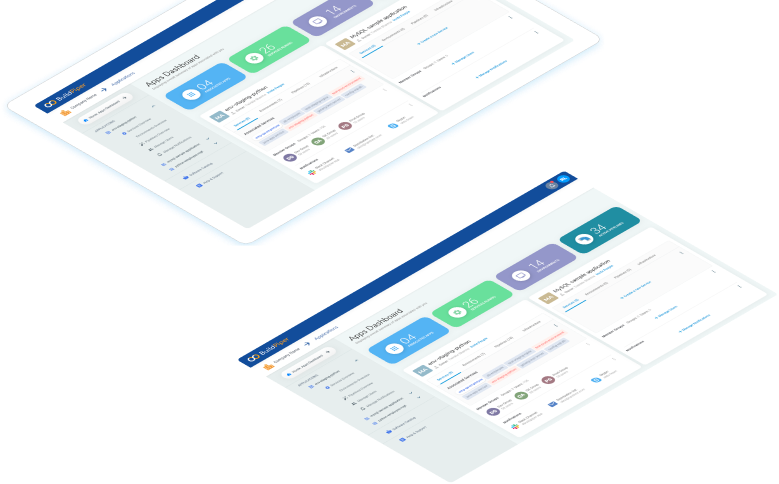Synchronized DevOps Efficiency with GitOps.
Empower DevSecOps and Seamless Application Delivery with GitOps
Experience Effortless GitOps Workflow Management with BuildPiper...

Scroll to see, how we did it for one of our Global clients

GitOps is an operational framework that extends DevOps best practices employed in application development, encompassing aspects like version control, collaboration, compliance, and CI/CD, and applies these principles to the domain of infrastructure automation.
The benefits of GitOps for teams
Leverages version control systems to enable easy tracking of changes, rollback to previous states, and collaboration among team members while maintaining a history of configurations
Eliminates the need for manual intervention, as the system continuously applies and enforces the desired configuration specified in the version-controlled repository.
Ensures consistency across different environments, such as development, testing, and production.
Changes pushed to the Git repository trigger automated pipelines, ensuring rapid and reliable delivery of new features, updates, and fixes.
With infrastructure configurations stored in a Git repository, team members can review, comment, and contribute to the code, fostering a collaborative and transparent development process.
When aiming for streamlined collaboration, declarative infrastructure, and automated continuous delivery through version control systems like Git: GitOps becomes particularly beneficial for organizations prioritizing efficient and collaborative management of infrastructure.

Few Benefits to start with


No more manual triggers, get all your processes automated.

Pre-defined templates to simplify GitOps workflows

BuildPiper enables teams to create an EventListener and define actions that need to be executed in response to the webhook request received. Whenever an event is triggered in the Git repo, a webhook request is sent to the specified URL. As soon as the EventListener receives the message(enclosed within the webhook request), it executes the defined actions.
